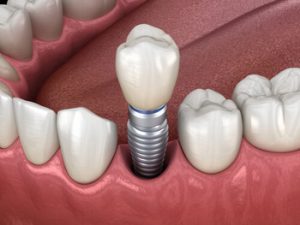Welcome to our comprehensive exploration of dental implants for pensioners, a topic of significant relevance to anyone valuing oral health and the quality of life in their golden years. Dental implants are the pinnacle of restorative dental treatment, serving as a sturdy foundation for replacement teeth. These implants are expertly placed into the jawbone, where they fuse with the surrounding bone tissue, effectively emulating the root structure of natural teeth.
For pensioners, maintaining dental health is pivotal. It’s not just about a radiant smile; it’s about sustaining the ability to chew and speak comfortably, aspects greatly impacted by missing teeth. Dental implant procedures offer a permanent solution to these common age-related issues, providing the functionality and feel of natural teeth.
The benefits of dental implants for pensioners extend beyond mere aesthetics. Implants prevent further tooth loss and jaw bone deterioration—common problems that traditional dentures can’t address. Moreover, for those concerned about the dental implant cost, there’s good news. Many dental schemes, teaching hospitals, and private health insurance policies offer support. Some even provide low-cost dental implants by dental students under supervision or through many dental charitable organisations.
Implant-supported dentures, a form of dental implantation, can also help improve oral health by providing stable chewing surfaces and reducing the risk of gum disease, a noteworthy concern among pensioners. This enhanced stability is not only conducive to a healthier diet but also to an improved quality of life.
As we delve further into dental implants for seniors, it’s crucial to understand that although the initial consultation and implant placement is a surgical or invasive procedure, it’s widely considered safe and minimally invasive when performed by an experienced dentist. With the advent of flexible payment options and access to dental implants improving, there’s an increasing number of pensioners who can now smile with confidence, thanks to this transformative dental care solution.
Why Pensioners Might Need Dental Implants
As individuals age, dental health inevitably becomes a critical concern. For pensioners, maintaining oral health is paramount, including addressing common dental issues associated with ageing, such as gum disease and tooth decay, often leading to tooth loss. The absence of one or more teeth not only impacts the aesthetics of a smile but can also lead to further tooth loss, affecting overall dental health. This is where dental implants come into play as a preferred option to replace missing teeth and restore the function and appearance of natural teeth.
Dental implants for pensioners offer a permanent solution to missing teeth. Unlike traditional dentures, which rest on the gum’s surface, dental implants are surgically placed into the jaw bone, providing stability and preventing bone deterioration. This implant placement can significantly improve oral health and the ability to eat and speak comfortably, leading to an enhancement in the quality of life.
 However, the cost of dental implants often poses a barrier. Dental implant costs can vary, but options for low-cost dental implants are available through dental schools, where treatments are performed by qualified dental students under the supervision of experienced dentists, or through payment plans provided by some dental clinics.
However, the cost of dental implants often poses a barrier. Dental implant costs can vary, but options for low-cost dental implants are available through dental schools, where treatments are performed by qualified dental students under the supervision of experienced dentists, or through payment plans provided by some dental clinics.
For those concerned about the surgical aspect, modern dental implant procedures have evolved to be minimally invasive with a focus on patient comfort. The initial consultation with an appropriately qualified health practitioner will determine the best course of dental implant treatment, considering the patient’s overall health and specific dental needs.
In conclusion, pensioners seeking to improve their dental health and regain the functionality of their teeth should consider dental implants a valuable investment in their quality of life. With the right approach to accessing dental implants, including exploring avenues for financial assistance, this treatment is a viable option for many seniors.
Cost Considerations
When considering the cost of dental implants, especially for pensioners, it is essential to break down the factors that influence the overall expense. The average costs of dental implants can range significantly based on geographic location, the expertise of the dentist, and the specific needs of the patient, such as the requirement for bone grafting or the type of dental prosthesis needed.
Compared to other dental procedures, dental implants may initially seem more expensive. However, when comparing implants to options such as bridges or partial dentures, it is important to consider longevity and quality of life. While bridges and dentures often need to be replaced every 5 to 10 years, dental implants, if properly maintained, can last a lifetime, potentially making them a more cost-effective solution in the long term.
For pensioners, managing the cost of dental implants can be challenging. However, there are avenues for financial assistance. Some dental services offer dental implants for pensioners at a reduced rate, and many dental charitable organisations provide access to free or low-cost dental implants. Additionally, dental schools may offer discounted services performed by dental students under the supervision of experienced dentists.
Insurance coverage for dental implants varies by provider, but more insurance companies are recognising the long-term benefits of this dental treatment. Pensioners with dental health insurance should consult with their insurance provider to understand the extent of coverage. In cases where private health insurance does not fully cover dental implants, many clinics offer flexible payment options to alleviate the financial burden.
The long-term cost-effectiveness of dental implants for seniors cannot be overstated. Implant placement can prevent further oral health problems, such as jaw bone deterioration accompanying missing teeth, potentially reducing the need for more extensive dental care. Moreover, the ability to replace missing teeth with implants that function like natural teeth can greatly improve oral health and overall well-being.
Preparing for Dental Implants
Preparing for dental implant surgery is a crucial step towards ensuring the success of this procedure. For pensioners considering dental implants, the preparation phase begins with thorough medical evaluations to determine their candidacy for the surgery. This typically involves a comprehensive dental examination to assess oral health, the condition of existing teeth, and the density of the jaw bone, which will support the implant components. Health screenings to check for conditions such as gum disease or tooth decay, which could compromise the implant site, are also vital.
Lifestyle adjustments may be necessary in the lead-up to dental implant placement. Smoking, for example, can hinder healing and should be ceased well in advance. It’s also important for patients to maintain healthy gums and follow a disciplined oral hygiene routine to prepare the mouth for the upcoming surgical or invasive procedure.
Setting realistic expectations is equally important. An experienced dentist will provide a clear understanding of what dental implant procedures entail, including the potential need for bone grafting or tooth extractions before implant placement. The initial consultation is the best time to discuss these steps, as well as to understand the dental implant cost, potential payment plans offered by dental clinics, or any major dental cover available through private health insurance.
The Procedure: Step-by-Step
Initial Assessment and Planning
The journey to restore your smile with dental implants begins with an initial consultation. During this phase, the dentist assesses oral health, discusses dental implant treatment, and addresses any problems. This stage often includes X-rays or 3D images to evaluate the jaw bone, surrounding bone tissue, and existing teeth, ensuring a safe and effective dental implant placement.
The Implant Surgery
Dental implant surgery is a carefully orchestrated procedure. It begins with preparing the implant site, followed by the precise placement of the implant components into the jaw bone. This surgical or invasive procedure carries risks, so a qualified dentist performs it. For pensioners, accessing dental implants might include low-cost options through dental schools or dental schemes with flexible payment options.
Recovery and Care Post-Procedure
After dental implant placement, a period of healing is required for the jaw bone to fuse to the implant, known as osseointegration. During this time, patients must follow a strict dental care regimen to ensure improved oral health and promote healing. This may include taking prescribed medications, maintaining healthy gums, and avoiding habits that impede healing.
 Fitting and Adjusting the Final Crown
Fitting and Adjusting the Final Crown
Once healing is complete, patients return for the fitting of the artificial tooth or crown. This final phase ensures that the replacement teeth blend with natural teeth, restoring full function and aesthetics. The dentist adjusts the final crown for comfort and function, completing the dental implant procedure. Although the cost of dental implants can be a concern, many find the investment worthwhile for the significant improvements in dental health and quality of life.
Aftercare and Maintenance
Aftercare and maintenance are pivotal to the longevity and success of dental implants, especially for pensioners who may be more susceptible to oral health problems. Immediate aftercare post-surgery for dental implants requires patients to follow their dentist’s instructions meticulously to prevent infection at the implant site and to promote healing of the surrounding bone tissue. This typically includes taking prescribed medications, adhering to a soft diet, and applying ice to mitigate swelling.
Long-term maintenance of dental implants is similar to caring for natural teeth, but it demands a conscientious oral hygiene routine. Dental implants for seniors are not susceptible to tooth decay like natural teeth, yet the health of the surrounding gums is vital to their endurance. Regular brushing and flossing, along with using recommended dental products to maintain healthy gums, are essential to prevent gum disease, which can undermine the implant’s stability.
Regular check-ups and cleanings are also critical. An appropriately qualified health practitioner should monitor dental implants at least biannually to ensure the implant components are functioning properly and to address any potential oral health issues promptly. During these visits, experienced dentists can assess for signs of gum disease treatment if necessary, check the integration of the implant, and ensure there is no further tooth loss or damage to the existing teeth. These ongoing dental services, though they may incur additional dental implant costs, are fundamental to maintaining improved oral health and the integrity of the dental prosthesis over time.
Risks and Considerations
Potential Complications
Dental implant surgery, like any surgical or invasive procedure, carries risks. Potential complications can include infection at the implant site, damage to surrounding teeth or blood vessels, nerve damage, and problems with the jaw bone, such as insufficient bone mass requiring bone grafting. An experienced dentist must conduct the implant procedure to minimise these risks.
Considerations for Pensioners with Health Issues
For pensioners, the cost and physical demands of dental implant treatment require careful consideration, particularly for those with existing oral health problems or systemic health issues such as diabetes or heart disease, which may affect healing. Access to dental implants for pensioners may be facilitated through subsidised dental schemes or dental schools offering lower-cost services.
Managing Expectations
Pensioners need to have realistic expectations regarding dental implants. While implant-supported dentures or single-tooth implants can significantly improve oral health and function, they require maintenance and can still be susceptible to gum disease. Ensuring a thorough initial consultation and discussing all aspects of dental care, including maintenance and costs, with a qualified dentist is key to successful dental implantation.
Alternatives to Dental Implants
 For those seeking alternatives to dental implants, traditional dentures are a viable option, often more accessible through public dental services or private health insurance. Dentures can replace missing teeth and are less invasive but may require adjustment over time due to changes in the jaw bone. Bridges, anchored to existing teeth, offer another solution for replacing one or more teeth and can be a cost-effective dental treatment. However, they may affect the surrounding teeth. Opting for no treatment can lead to oral health problems, such as further tooth loss and a decline in dental health.
For those seeking alternatives to dental implants, traditional dentures are a viable option, often more accessible through public dental services or private health insurance. Dentures can replace missing teeth and are less invasive but may require adjustment over time due to changes in the jaw bone. Bridges, anchored to existing teeth, offer another solution for replacing one or more teeth and can be a cost-effective dental treatment. However, they may affect the surrounding teeth. Opting for no treatment can lead to oral health problems, such as further tooth loss and a decline in dental health.
Conclusion
Dental implants offer pensioners a second chance at enjoying the benefits of natural teeth, providing a stable solution for replacing missing teeth and ensuring improved oral health. The advancement in dental implant procedures means that dental implantation can be minimally invasive, promoting healthy gums and preventing further tooth loss. When considering dental implants, it is essential to weigh the benefits against the cost of dental implants. With access to low-cost dental implants through dental schemes or dental schools, the decision can be more manageable for pensioners. The value of enjoying an artificial tooth that looks and functions like a natural one cannot be underestimated. We encourage pensioners to discuss dental implant treatment with experienced dentists who can provide a thorough initial consultation. An appropriately qualified health practitioner can advise on the implant procedure, potential risks, and the care required post-surgery. To explore your options for dental implants and to understand how they can transform your dental health, visit Beyond Infinity Dental. Our team of qualified dentists is ready to guide you through the process and help you make an informed decision. Don’t let tooth loss affect your quality of life any longer. Call us on (02) 8806 3799 to book your appointment today.
Note: Any surgical or invasive procedure carries risks. Before proceeding, you should seek a second opinion from an appropriately qualified health practitioner.
References:
https://pubmed.ncbi.nlm.nih.gov/8699485/
https://www.dentalhealth.org/Blog/dental-implants-and-how-crucial-replacing-teeth-really-is
www.verywellhealth.com/what-to-expect-during-a-dental-implant-procedure-1059372
https://nationaldentalfoundation.org.au/dental-implants-cost-australia/
https://www.webmd.com/oral-health/dental-implants









